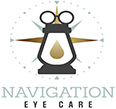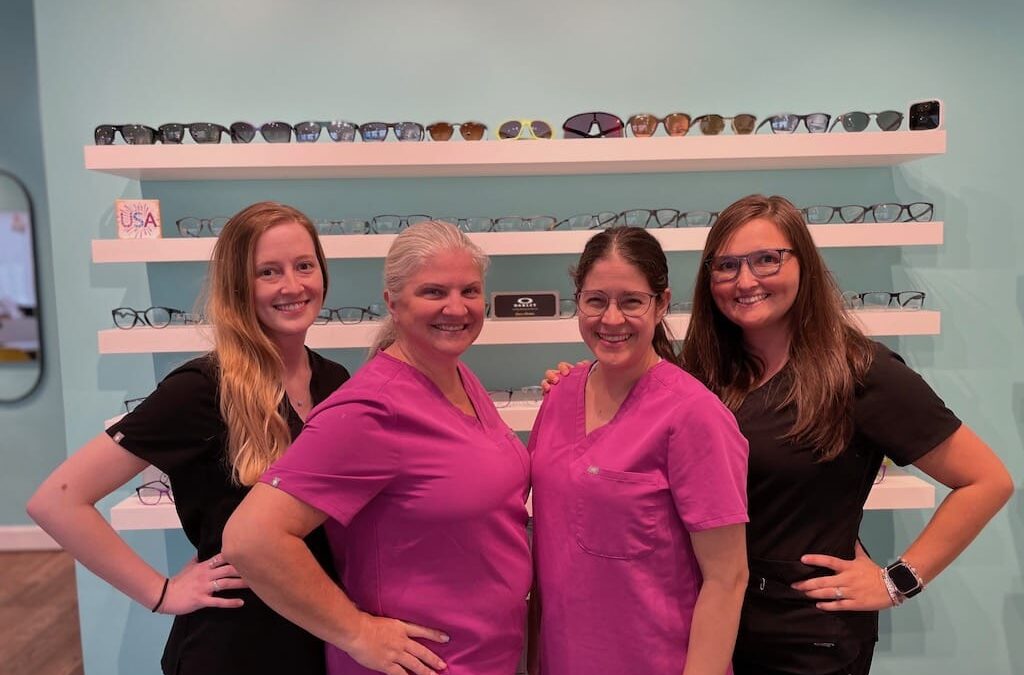Eyes on the Prize: Vision Therapy for Sports Performance Enhancement
The Winning Edge of Vision
In the world of sports, success often hinges on a fraction of a second or a split-second decision. Athletes rely heavily on their physical abilities, but they also depend on their vision to make crucial judgments and actions. This blog post explores the concept of vision therapy as a tool for enhancing sports performance and how Optometrist Chesapeake VA and her team of vision therapists from Navigation Eye Care can help athletes gain the winning edge.
The Vision-Sports Connection
Clear and efficient vision is not only about seeing clearly but also about processing visual information rapidly and accurately. In sports, this visual processing speed can be the difference between victory and defeat. Key visual skills for athletes include:
- Visual Acuity: Sharpness of vision for identifying objects and details.
- Eye-Hand Coordination: The ability to coordinate vision with hand or body movements, essential in sports like tennis, basketball, and baseball.
- Depth Perception: Judging the distance between objects accurately, critical in sports like golf or archery.
- Peripheral Vision: Awareness of objects or movement in the outer field of vision, crucial in team sports.
Common Vision Challenges in Sports
Many athletes, both professional and amateur, face vision challenges that can affect their performance:
- Eye Tracking Problems: Difficulty following moving objects, such as a tennis ball or hockey puck.
- Convergence Issues: Struggles with focusing both eyes on a single point, impacting depth perception and targeting accuracy.
- Visual Processing Speed: Slower processing of visual information, leading to delayed reactions.
- Eye Fatigue: Fatigue during games or practice sessions, resulting in reduced visual sharpness.
Vision Therapy: The Game-Changer
Vision therapy is a specialized program offered by Optometrist Chesapeake VA and overseen by her at Navigation Eye Care. It involves a series of customized exercises and activities designed to improve visual skills and enhance sports performance.
How Vision Therapy Enhances Sports Performance
- Improved Visual Processing Speed: Vision therapy can increase the speed at which an athlete processes visual information, enabling quicker reactions and decisions on the field.
- Enhanced Eye-Hand Coordination: Exercises in vision therapy can improve the coordination between the eyes and the body, resulting in more accurate shots, throws, or hits.
- Better Focus and Concentration: Athletes who undergo vision therapy often report improved focus and concentration during games, reducing errors.
- Reduced Eye Fatigue: Vision therapy can enhance eye stamina, reducing eye fatigue during extended periods of play.
Who Can Benefit from Vision Therapy?
Vision therapy is not limited to a particular sport or age group. Athletes of all levels and ages can benefit from vision therapy, including:
- Golfers aiming for precision
- Basketball players working on their shooting accuracy
- Baseball players improving their batting skills
- Hockey players enhancing their tracking ability
- Tennis players aiming for better reaction times
The Winning Formula
In the competitive world of sports, athletes are continually seeking ways to gain an advantage. Vision therapy offers a powerful and often untapped resource to enhance sports performance. The trusted Optometrist Chesapeake VA at Navigation Eye Care can assess an athlete’s visual skills and create a personalized vision therapy plan to address specific challenges and goals.
For athletes, achieving victory often comes down to milliseconds and millimeters. By investing in vision therapy, athletes can sharpen their visual skills, improve their performance, and increase their chances of standing on the winner’s podium. The next time you step onto the field, court, or course, remember that having your “eyes on the prize” can be the game-changer you’ve been looking for.
A Visionary Approach to ADHD: Exploring Vision Therapy Solutions
The Connection Between Vision and ADHD
Attention Deficit Hyperactivity Disorder (ADHD) is a complex neurodevelopmental condition that affects millions of individuals worldwide. While it’s primarily associated with difficulties in attention, focus, and impulse control, recent research has shed light on a potential link between vision problems and ADHD. This blog post delves into this innovative perspective and explores how vision therapy, offered by Optometrist Chesapeake VA experts at Navigation Eye Care, can provide valuable solutions for individuals with ADHD.
Understanding the Vision-ADHD Connection
- Visual Processing Skills: Vision is not just about seeing clearly; it’s also about processing visual information effectively. Children and adults with ADHD may struggle with visual processing skills, making it challenging to absorb and interpret visual information efficiently.
- Eye Movements and Tracking: People with ADHD may experience difficulties in maintaining steady eye movements and tracking objects smoothly. This can affect reading, following instructions, and staying focused on tasks.
- Convergence and Eye Teaming: Problems with convergence (the ability to turn both eyes inward to focus on a near object) and eye teaming (the ability to coordinate both eyes together) can lead to eye strain and fatigue, which may exacerbate ADHD symptoms.
The Role of Vision Therapy
Vision therapy is a specialized program conducted by Optometrist Chesapeake VA and her team at Navigation Eye Care. It involves a series of customized exercises and activities designed to improve visual skills and correct underlying vision problems.
How Vision Therapy Benefits Individuals with ADHD
- Enhanced Visual Processing: Vision therapy can improve the brain’s ability to process visual information more efficiently, potentially reducing the cognitive load on individuals with ADHD.
- Improved Focus and Attention: By addressing eye movement and tracking issues, vision therapy can help individuals with ADHD maintain better focus and attention during tasks.
- Reduced Eye Strain: Vision therapy can alleviate eye strain and fatigue, which are common among individuals with ADHD, allowing for more extended periods of concentrated effort.
- Better Reading and Academic Performance: Improved visual skills often translate into better reading comprehension and academic performance for individuals with ADHD.
Who Can Benefit from Vision Therapy for ADHD?
Vision therapy can be beneficial for individuals of all ages, including children and adults diagnosed with ADHD. If an individual with ADHD experiences difficulties related to visual processing, eye movements, or convergence, vision therapy may offer valuable support.
A Holistic Approach to ADHD
ADHD is a complex condition with multiple facets, and a holistic approach to treatment is often the most effective. While medication and behavioral therapy play essential roles, addressing underlying vision problems through vision therapy can be a game-changer for many individuals with ADHD.
If you or your child has been diagnosed with ADHD and struggles with visual processing or related issues, consider consulting with Optometrist Chesapeake VA at Navigation Eye Care. Through a personalized vision therapy plan, you can work towards enhancing visual skills and ultimately improving attention, focus, and overall well-being.
By recognizing the connection between vision and ADHD and taking proactive steps to address visual challenges, you can empower individuals with ADHD to thrive and reach their full potential in both academic and daily life. Vision therapy offers a visionary approach to ADHD, bringing new hope and possibilities for those living with this condition.

